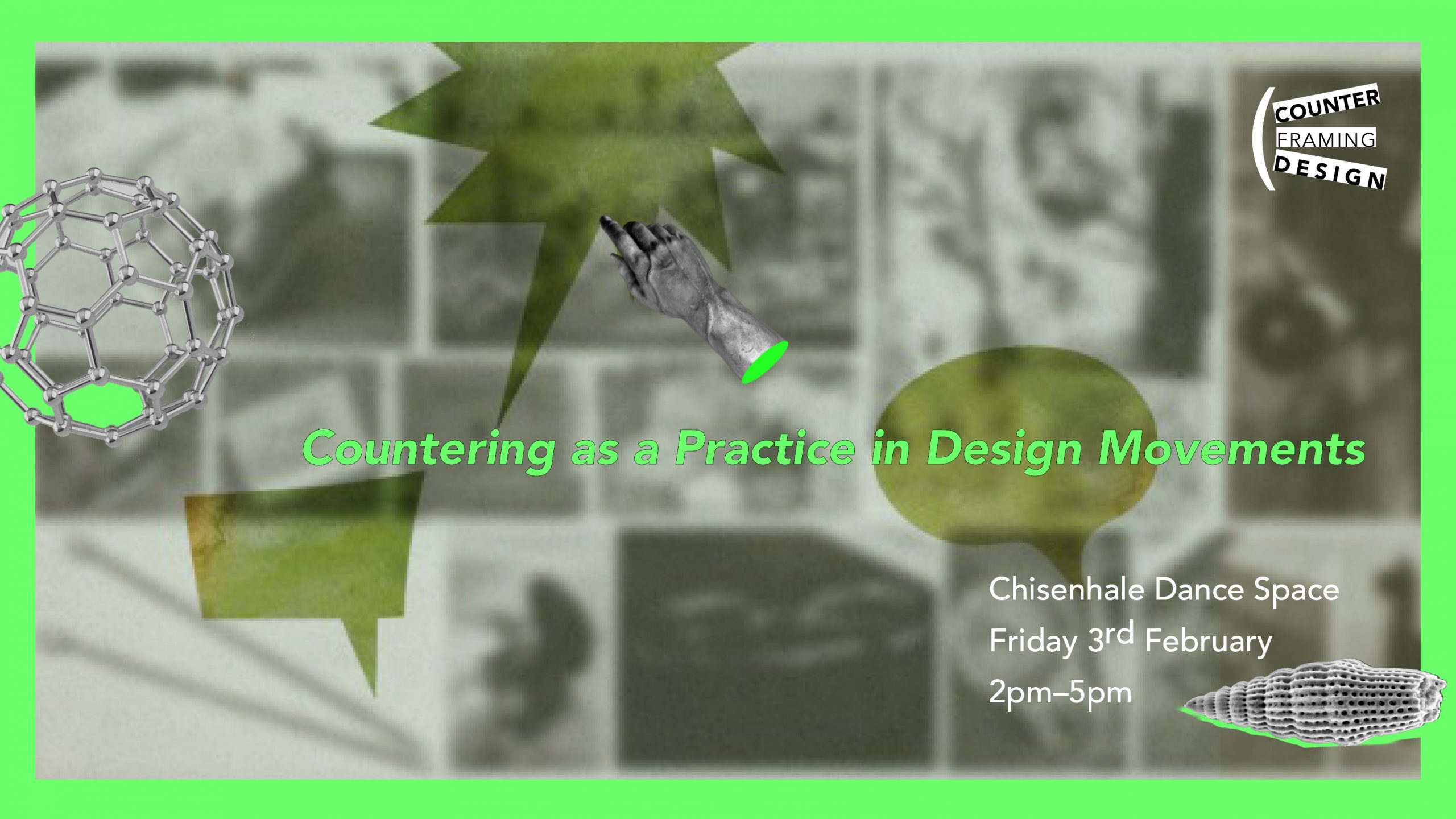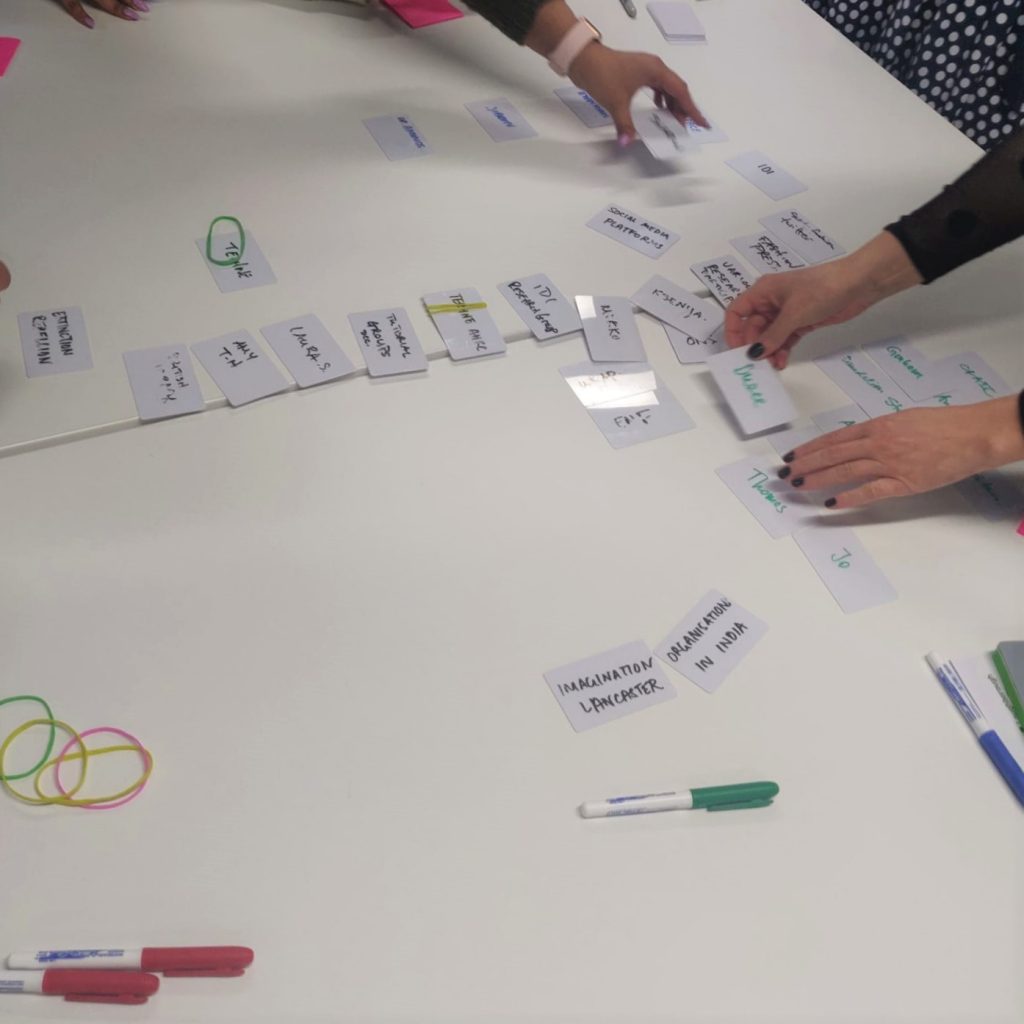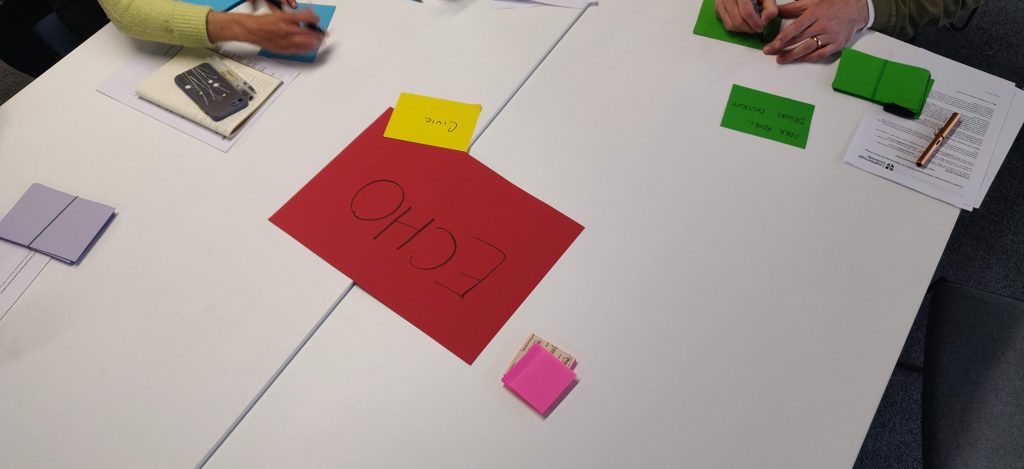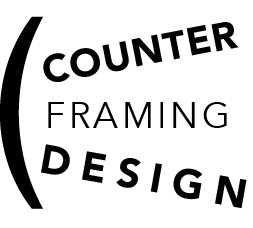
31 Jan Community Organising INSIGHTS AND A NEW INTERACTIVE Event
Despite the ideas of hopeful cohesion it might conjure, community organizing is also rife with tension—and this isn’t necessarily a negative thing. So much of community organizing relies on building, maintaining, and shifting relationships; the challenge is to do this in a way that allows dissent to be generative. When we ran our New Modes of Community Organizing workshops with various partners and collaborators, we noticed how this tension between change and stagnation was both highlighted and distanced throughout.
Although it was often framed as a problem to overcome, we asked our participants to instead counter-frame tension as the something that could be generative. What happens, for example, when we start to map out community relationships based on shared practices? What about when we rearrange these relationships based on some notion of professional proximity, ‘nearness’ or ‘farness’? The complexity of these relationships often reveals gaps in need and spaces for development. For example, through a relationship mapping activity Echo identified a gap in common practices for interfacing with their users and thought about how to implement new practices so user organizing could become self-sustaining. In other words, they thought about how sharing common Echo staff practices might lead to the formation of mini peer-to-peer groups who would regenerate these very practices.

At the same time, these tensions were understood to play out at a distance, i.e., at a different time, with a relationship that was not in the room at the time, and/or with a different organisation. When we asked participants to map out their feelings while working on a particular project or within the organization, we began to get a hint of how participants brought tensions with them throughout their careers. In many cases, this spoke to the generativity of what is carried forward, even if not explicitly. For example, at a different workshop with the team at Outlandish one member discussed how internal relationship tensions created emotional highs and lows, but also how both unpredictable elements (Covid-19, shifting finances) and changing practices (of care, of negotiation) interacted to change relationship dynamics in the community.

This initial glimpse into the challenges that community co-design faces has become the basis for a new project called “Uncommon Knowledge” to elaborate on Modes of Community Organising activities we’ve developed during this work and informs the final event that we will host as part of the Counter-Framing Design project. This in-person interactive installation will focus on countering as a practice in design movements and is set to run on Friday, February 3rd at 14:00 at the Chisenhale Dance Space in London. Spaces are limited, but if you’d like to come get in touch or register at the Eventbrite link to explore the work so far.



